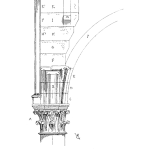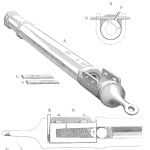
A commonly encountered fork in the career road for many successful engineers is to a) continue engineering or b) manage others who engineer. To continue engineering is an obvious choice, and an often desired one. [Read more…]
Your Reliability Engineering Professional Development Site
Find all articles across all article series listed in reverse chronological order.
by Ray Harkins Leave a Comment

A commonly encountered fork in the career road for many successful engineers is to a) continue engineering or b) manage others who engineer. To continue engineering is an obvious choice, and an often desired one. [Read more…]
by Greg Hutchins Leave a Comment

In his book “Willful Ignorance: The Mismeasurement of Uncertainty”, Herbert I. Weisberg notes: “Medical research is often held up as the paragon of statistical research methodology. Evidence-based medicine, based on randomized clinical trials, can provide proof of the effectiveness and safety of various drugs and other therapies.” (1) He goes on to note that clinical practitioners, who’s judgement is informed by evidence-based data, are finding little in the research that is useful. [Read more…]
by James Reyes-Picknell Leave a Comment

Many of you may be surprised to learn that Reliability Centered Maintenance (RCM) was actually developed with cost cutting in mind! Aircraft maintenance costs were huge. For example the Douglas DC-8-32 aircraft (a four engine narrow body jet liner built from 1958 to 1967 that carried 150 passengers) required upwards of 4,000,000 man hours of maintenance work for only 20,000 hours of flying time! That’s 200 maintenance hours per operational revenue earning hour. With growing demand for air travel in those years, wide bodied aircraft were being designed (B747, DC-10 and L-1011). But air travel was prohibitively expensive. That limits the size of the market and growth potential. A solution was needed. [Read more…]
by Nancy Regan Leave a Comment

“Fit or fold” is a losing strategy in poker…and when it comes to equipment maintenance. When you work in a reactive environment and only do maintenance when failure occurs, you’re living at the mercy of our equipment. Watch how RCM can help you formulate a winning maintenance strategy. [Read more…]
by Adam Bahret Leave a Comment

There is a lot to be said for having a plan. Now, I’m not saying I always operate with a plan. In my personal life, I tend to shoot from the hip, so to speak, and those that know me would undoubtedly describe me as impulsive. As evidence of my spontaneity, I can cite a few ever-morphing construction projects that had to be half redone once the final was denied as well as dinners that ended up tasting a little weird because the recipe was composed of whatever I could find. Neither of these scenarios have devastating consequences when they are over budget, late to delivery or kind of suck as far as accomplishing the original goal. We can always fix the weird porch extension next year and if you really don’t like my chicken, rice, tartar, mustard and olive dish then just order a pizza. [Read more…]
by Robert (Bob) J. Latino Leave a Comment

In a recent BMJ article entitled ‘Our current approach to root cause analysis: is it contributing to our failure to improve patient safety?‘, the authors’ state “Although RCA’s have been proposed as a mechanism for change, safety scientists believe the lack of improvement of adverse event rates in healthcare is largely because our methods of approaching change are ineffective”. [Read more…]

“A failure analysis is a waste of resources. We know why it failed. We need to move on.”
If you have participated in a failure analysis, you have likely heard the preceding comments, and been told to fix the problem ASAP. You make a change, but the same failure re-surfaces and you are in the hot seat again. What can you do to improve the failure analysis process in the future? Let us begin by reviewing some realities of failures. [Read more…]
by Bryan Christiansen Leave a Comment
Improving the reliability of performed maintenance work helps in the refinement and improvement of policies that shape a cost-effective maintenance strategy that aims to address dominant causes of asset failure.
Before we continue, we have to define how reliable maintenance looks like. In the context of this article, we will define it as consistently performing adequate maintenance in the required time frame. In other words, it means performing good maintenance work while respecting due dates.
by Greg Hutchins Leave a Comment

The risk of a pandemic is not an unknown unknown. In the 2019 World Economic Forum’s Global Risk Report it ranked at a less than average likelihood with a more than average impact. Not a bad assessment but the causes and consequences are difficult to evaluate. There is a barrage of statistical data by country; a lack of knowledge and changing opinions which generates misinformation that is then clouded by journalistic sensationalism in the hunt for yet more breaking news and a spot on the TV. [Read more…]
by James Reyes-Picknell Leave a Comment

Reliability Centered Maintenance (RCM) was developed in the airline industry to be used for developing maintenance programs for new aircraft. There’s no doubting it – originally RCM was intended for new designs and arguably where the results of failure could be catastrophic, specifically the loss of life and where costs of maintaining had grown ridiculously high. Aircraft maintenance costs had indeed grown very high by the 1960’s and 70’s before RCM came along. In fact, one of the big drivers behind RCM was cost reduction. It worked too – in both the aerospace and nuclear power industries! Safety and other benefits were there too, but they were not primary drivers. Then, as today, cost was the problem that got the attention. [Read more…]
by Nancy Regan Leave a Comment

Watch how my refrigerator…(make that THREE refrigerators)…reminded me about Potential Failure Conditions and the Consequences of Failure. I explain why I ignored a Potential Failure Condition coming from my refrigerator and chose to act “reactively” instead of “proactively.” [Read more…]
by Robert (Bob) J. Latino 1 Comment

I often ask my classes ‘If we follow our procedures to the letter, do nothing more and nothing less; would we optimize our system productivity, safety and reliability?’ The answer is NO. [Read more…]
by Gina Tabasso Leave a Comment

by Alan Ross
As professionals in the field of electrical system reliability, we have a choice.
We can follow the leaders, or we can follow the losers.
It may seem harsh to say that there are “losers” out there, because that’s one of the words that nobody likes to hear. Well, I don’t mean “loser” in the same way kids do when they hold up an “L” on their foreheads on the playground (see above). I mean it in the literal sense. A loser is someone who has experienced loss. [Read more…]
“My software never has bugs. It just develops random features.” Anonymous
More and more mechanical and electrical systems include software integration. The FMEA methodology applies very well to software as well as hardware. It is possible to include software functionality in the System FMEA as part of the functional descriptions. However, for complex software functionality such as embedded control systems, it may be useful to perform a separate software FMEA.
by Ray Harkins Leave a Comment

Depreciation is one of the more poorly understood, yet commonly encountered terms in managerial accounting. In accounting lingo, depreciation is the systematic allocation of the cost of an asset across its useful life. That’s a mouthful. But breaking down the definition into simpler terms helps explain how its used and why it’s important when conducting Return on Investment Analysis. [Read more…]